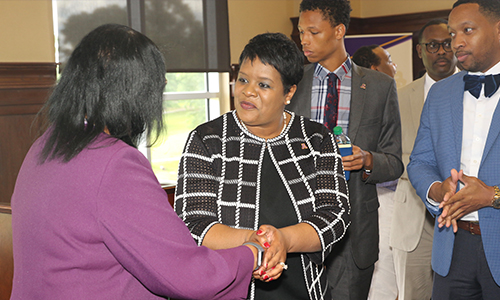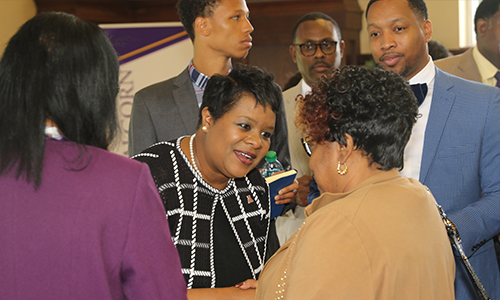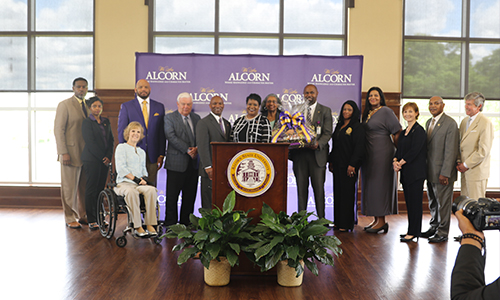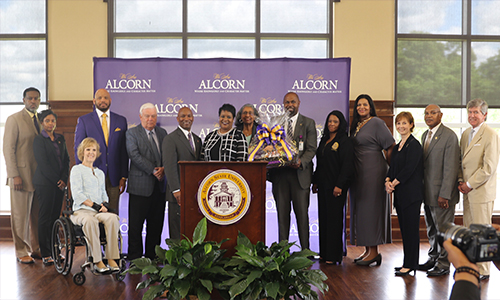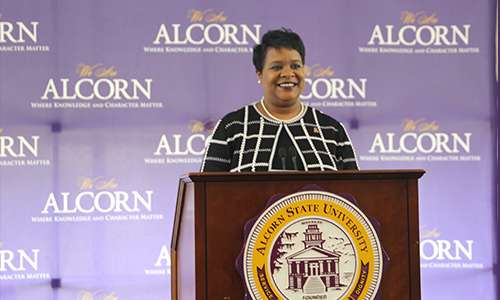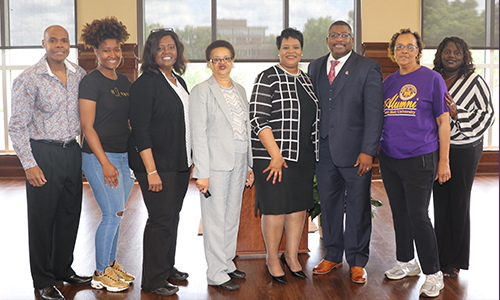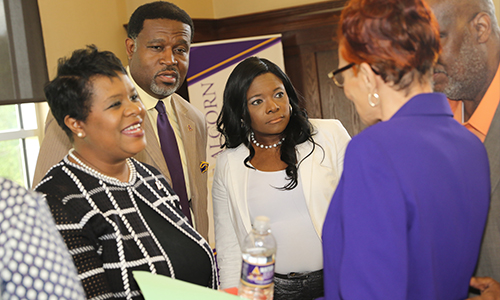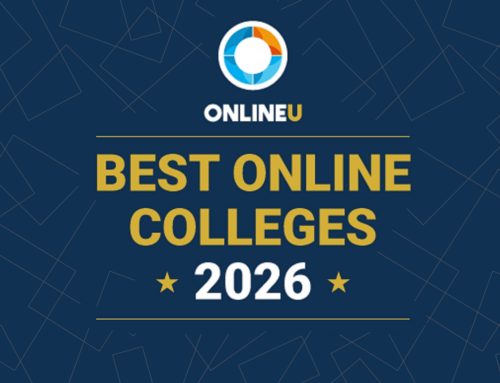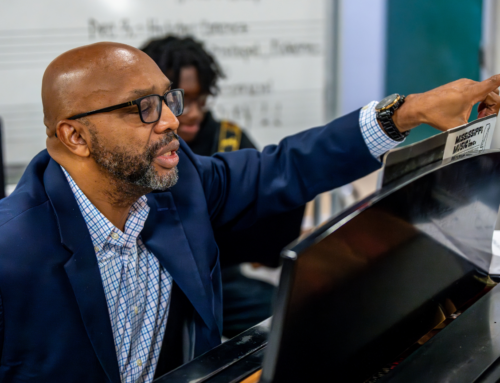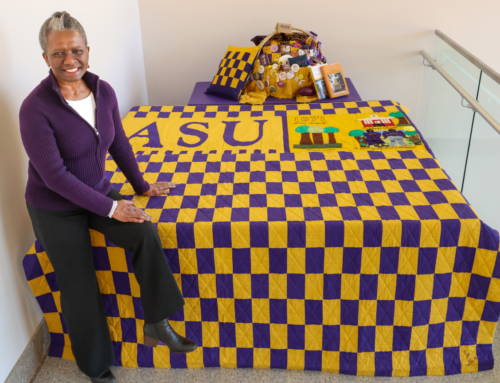Alcorn community excited, welcomes Dr. Felecia Nave home as 20th president
History was made at Alcorn State University, as the institution announced the hiring of its first female president.
Dr. Felecia M. Nave, a Prentiss, Mississippi native who earned a bachelor’s degree in chemistry from Alcorn in 1996, was named Alcorn’s 20th president Wednesday, April 24 at the Board of Trustees of State Institutions of Higher Learning (IHL) Press Conference held at the Dr. Clinton Bristow Dining Facility Gold Room on Alcorn’s campus.
Nave currently serves as provost and vice chancellor for Academic Affairs at North Carolina Central University in Durham, North Carolina. Before this role, she served as the Provost and Vice President for Academic Affairs at Prairie View A&M University in Prairie View, Texas.
Coming back to serve her beloved university was always a goal of Nave’s. She’s thankful to have to opportunity to give back to her alma mater by leading them into the future.
“It’s hard to describe the emotions that I feel about this wonderful opportunity,” said Nave. “I am privileged and honored to come home and serve my alma mater. We are Alcorn. I am Alcorn, and I hope the students and the university community will see me as a daily reminder of what an Alcorn education can do.”
Chelsea Quinn, a junior animal science major from McComb, Mississippi, was motivated by Nave’s new role. She said that it motivates her to accomplish her dreams in the future.
“It’s inspiring to students, especially females, to see Dr. Nave’s accomplishments and just how far you can go after graduating from Alcorn,” said Chelsie. “It’s amazing that she once walked this campus as a student, and now, she’s making history as our first female president.”
Andre Young, a Natchez, Mississippi native who graduated from Alcorn in 1976, has confidence in Nave because of her enthusiasm for Alcorn’s progress.
“It’s always good to have one of yours leading you,” said Young. “While listening to her speech, I could tell that she loves Alcorn, and that’s important. I believe that we’ve found a winner.”
Before the press conference, Nave spent the day on campus listening to and answering the questions of university students, faculty, staff, alumni, and community supporters during IHL’s Preferred Candidate for President Listening Session, also in the Gold Room.
University faculty and staff were the first to ask questions to Nave about her vision for Alcorn’s future. Dr. Ivan Banks, dean of the School of Education and Psychology and Maisha Pittman, program security manager for the Department of Military Sciences, voiced their concerns on the civic engagement of students and how accessible she would be in her new role.
Nave suggested educating students on how to be more social in various environments might be the key to developing their civic skills. She also assured the listeners of her approachability and availability to discuss their issues.
“We’re dealing with a different generation. Because of the constant use of technology by millennials, their engagement skills are different. It’s our responsibility to educate them outside of the classroom so that they can develop better social skills.
“My priority is listening. I’ve had success, but I don’t pretend to know it all. I understand that this is a collective partnership with the university. “I’m an accessible person, and I will be available. I want to allow everyone to share with me not only when things are going wrong, but also when things are working fine. My goal is to listen to see what works well with the university, and to overcome the challenges that this institution faces.”
The second session gave students a chance to convey their expectations from Nave. Trinity Jones, a sophomore social science major from Stonewall, Louisiana, asked Nave how she plans to support student success. Nave responded by affirming her belief in activities that not only foster the abilities of students but also provide her the opportunity to encourage their endeavors.
“I am student-focused, and my passion centers around student success. I plan to walk on campus and engage with students so that I can have a contextual experience in learning what the students need. I support small student forums where they can share the concerns of the student body. I also plan to find other creative platforms to celebrate the success of students as well as provide solutions for overcoming their obstacles.”
After listening to Nave’s response on caring for students, Sarah Pierre, a junior criminal justice major from Lafayette, Louisiana, spoke to Nave about her intentions to create initiatives that enforce student success on and off campus. Because of Nave’s experience, she’s aware of catering to the specific need of individual students to guarantee their progress.
“I’ve learned that what works for one student may not work for others, so it’s important to center our approach around strategies that benefits everyone. I’m an advocate of summer programs, and I believe that we should strategize initiatives to help students graduate in four years.”
Alumni and community supporters of Alcorn gathered for the final listening session.
Brenda Buck, former county administrator for the Claiborne and Jefferson County Boards of Supervisors, questioned Nave on her plans to foster economic development at Alcorn. Nave said that community development is something that she plans to explore to uplift the university and surrounding cities.
“I see Alcorn as a key player in the economic development in this region. It’s important that we actively partner with the communities so they can thrive.”
The Reverend Dr. Neddie Winters, president of the Alcorn State University National Alumni Association, wanted to know Nave’s plan to strengthen Alcorn’s Department of Agriculture. Nave hopes to bridge the gap between current agriculture students and prominent agriculture alumni to share advice and evolve the program.
“Agriculture is important to Alcorn. I’m familiar with several successful individuals who came from Alcorn’s program. We have to connect our agriculture students to those successful alumni so the program can continue to produce talented workers. That way, our current students can experience similar levels of success in the field.”
